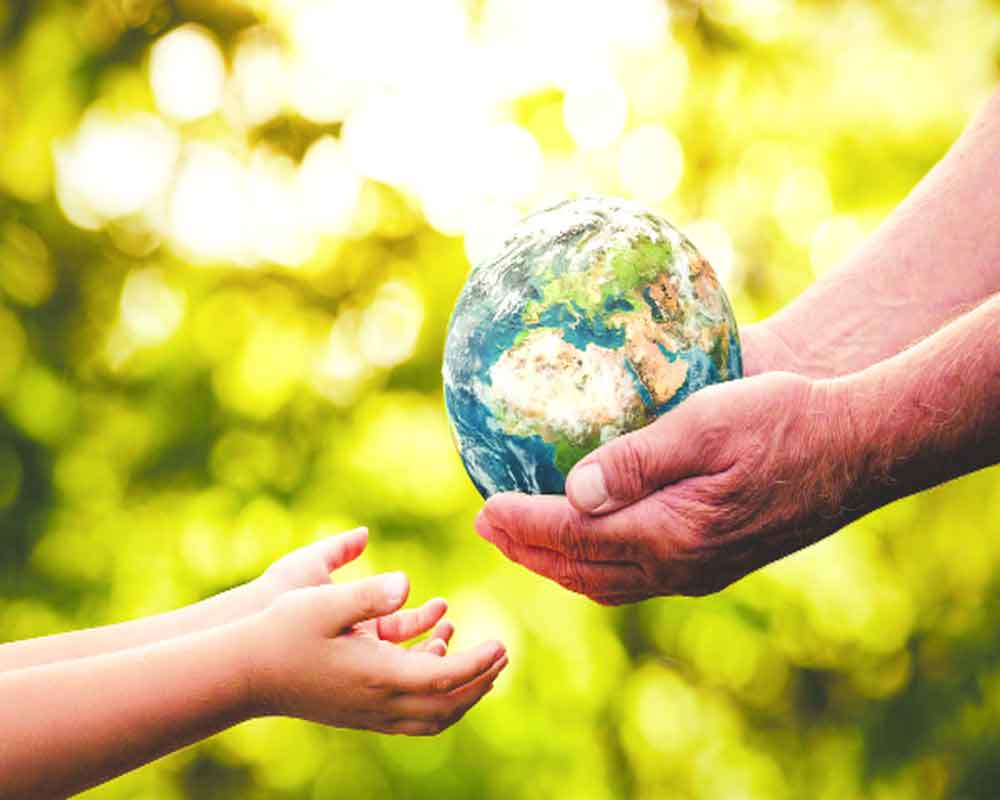Holistic education is the only way to bring about a lasting change, in fact it is the only way that can change the world for the better
Nelson Mandela has rightly said, that, "Education is the most powerful weapon we can use to change the world". It is a stairway to the growth and development of humankind. The right to education must be universal so that everyone can pursue a better future. However, the right to education is not only the right to access education but also about receiving quality education.
Quality education fosters the knowledge, skills, and values required to create a fairer and more sustainable world. According to Education International and the Association for Supervision and Curriculum Development, quality education "is one that focuses on the child's overall development- social, emotional, mental, physical and cognitive, regardless of gender, race, ethnicity, socioeconomic status or geographic location." We now realized that education alone will not lead to a sustainable future, therefore, learning about sustainable development (SD) is necessary. Target 4.7 in the 2030 Agenda for SD, emphasizes the importance of transformative education- that promotes global citizenship, sustainable development, human rights, gender equality, peace, and cultural diversity.
It is a holistic approach and is often depicted as three overlapping circles: ecological, social, and economic — to demonstrate the interplay between all parts of life and the need for their equal consideration to find lasting prosperity. But we generally have a unidirectional approach towards sustainability based on our predisposition. To comprehend basic principles of ecology, one must think holistically about relationships, connectedness, and context to realize the intricate interdependence and often unpredictable dynamics of ecological, social, and economic systems. This shift of focus from analytical thinking (parts) to contextual thinking (whole) is a prerequisite for building a more resilient world. It is regarded as a critical ability in education as it enables students to untangle and work within the complexities of life on Earth.
Integration of education for sustainable development (ESD) into teaching and learning can help in the realization of quality education, which is critical to fulfilling many of the sustainable development goals (SDGs). It is also essential for addressing other key issues, including, wasteful consumption, biodiversity conservation, and waste management. ESD is an interdisciplinary field that integrates concepts from multiple disciplines to understand how natural and man-made processes interact with each other and ultimately affect the various biomes on the planet. Adopting a wide range of participatory methodologies in education, is essential to change the behaviors and equip the current and future generations with the knowledge and skills they need to shape a sustainable future. These methodologies will allow them to develop problem-solving, interdisciplinary, and systemic thinking skills, which will help them learn, 'how to think rather than 'what to think within the context of sustainability.
In collaborative learning, students in small groups work together on a common goal to seek understanding and solutions. It fulfills the primary purpose of education - nurturing responsible citizens who can work together to solve complex ecological, social and economic issues. Thus, working on collaborative learning projects at an early age can boost their confidence and help them develop critical thinking, positive interdependence, diverse understanding along with various other social skills such as leadership, decision-making, communication, trust-building, conflict management, and a sense of ownership. Integration of ESD at all levels requires a systemic change in all kinds of textbooks, including science, math, social sciences, humanities, etc. Only a few degree programs in India provide students with employable skills. However, emerging challenges such as climate change, pandemics, and disruptive technologies will necessitate a workforce with cross-disciplinary skills.
Teaching ESD requires knowledge of several disciplines that is generally beyond the teachers' expertise. Reforms of this magnitude, however, will not be possible without effective policies, operational frameworks, political will, financial assistance and stakeholders' cooperation. National Education Policy 2020 is the first education policy of the 21st century, which aims to align the education system with SDGs and make education holistic, inclusive, multidisciplinary, learner-centric, inquiry-driven and experiential. It will hopefully shift humanity back onto the right path of development and secure the future for the coming generations. Although, the successful implementation of this policy will not only diversify India's global image but also make the education system at par with the best in the world. Our collective responsibility to improve the quality of education is essential for achieving the ambitions of Agenda 2030. However, "we stand now where two roads diverge. But unlike the roads in Robert Frost's familiar poem, they are not equally fair. The road we have long been traveling is deceptively easy, a smooth superhighway on which we progress with great speed, but at its end lies disaster. The other fork of the road - the one less traveled by - offers our last, our only chance to reach a destination that assures the preservation of the earth."
(The author is an advisor to Amity School of Natural Resources and Sustainable Development, Uttar Pradesh)


























